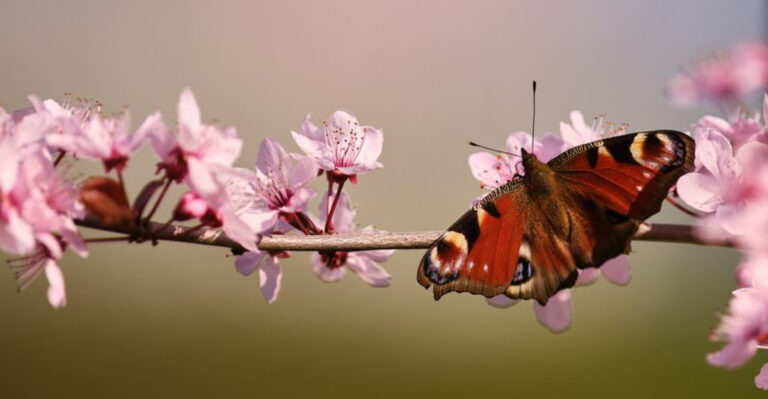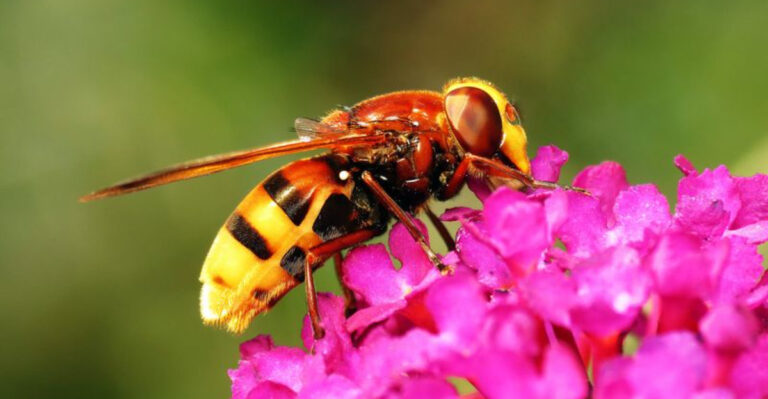12 Good Reasons Why You Shouldn’t Chase Spawning Bass
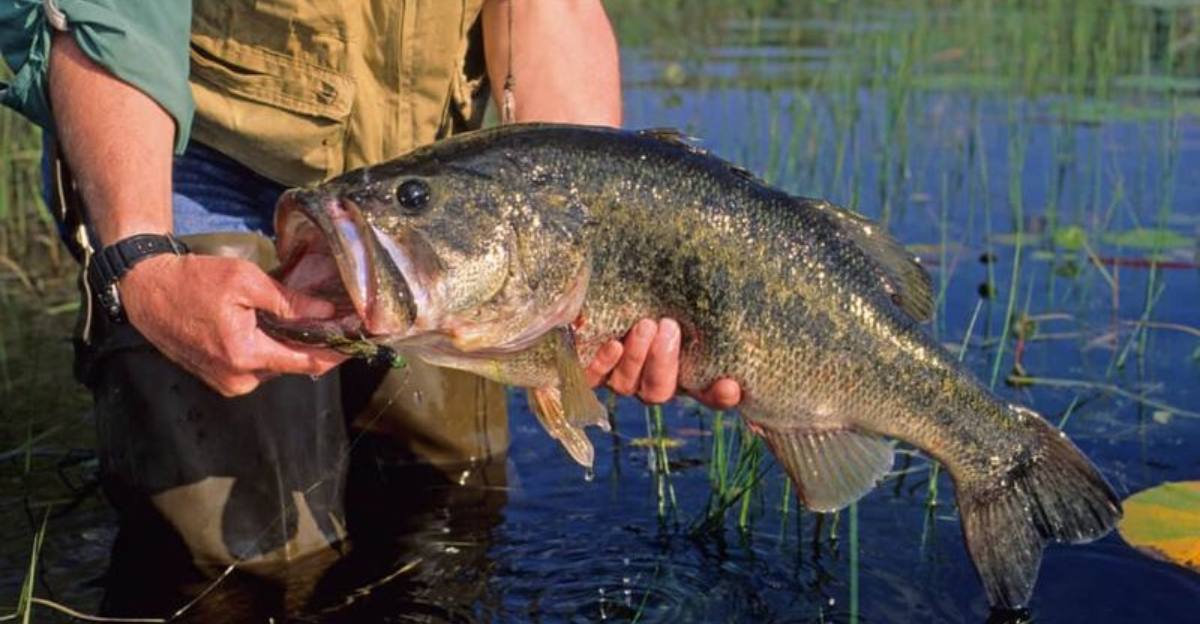
Spring brings bass to the shallows, where they build nests and lay eggs for the next generation. Many anglers get excited about the easy catches during this time, but targeting spawning bass can harm both the fish and future fishing opportunities.
Understanding why we should leave these fish alone during their reproductive cycle helps protect our favorite fishing spots for years to come.
1. It Disrupts The Reproductive Cycle
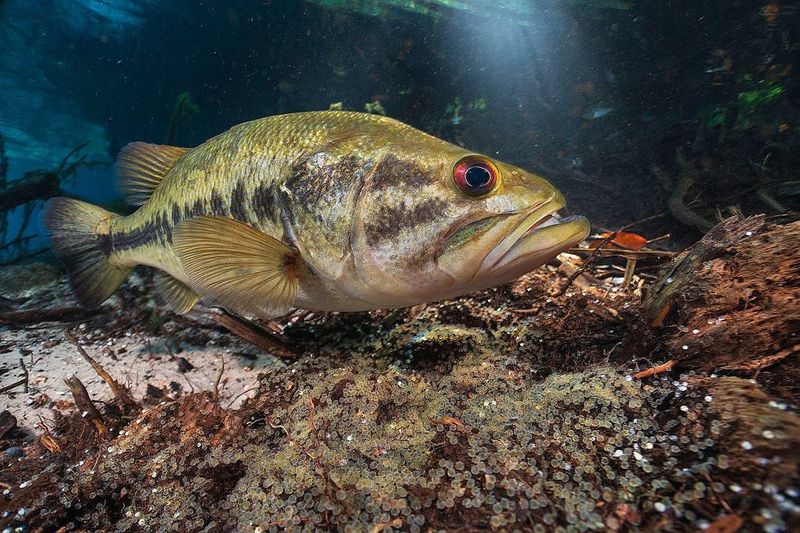
Bass invest tremendous energy creating and protecting their nests. When you catch a spawning bass, you’re yanking them away from their most important annual task.
The abandoned eggs often fail to develop properly without parental care. Even a brief absence can spell disaster for an entire brood of future bass.
2. It Leaves Eggs Vulnerable To Predators
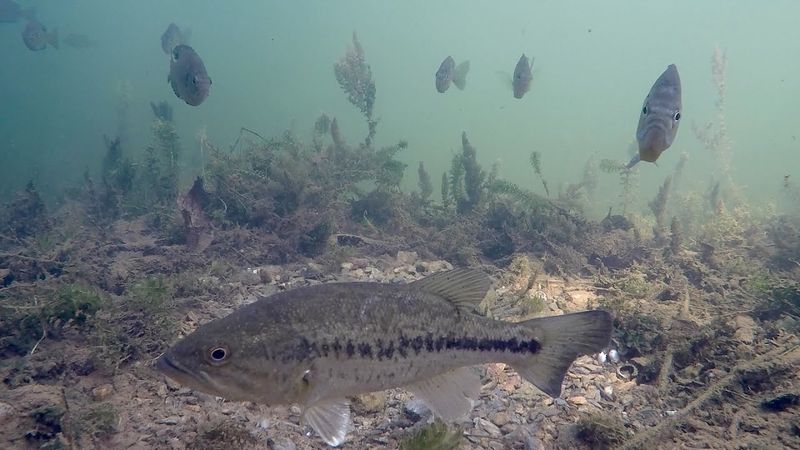
Nature has no patience for unattended bass nests. The moment you pull that guardian bass away, opportunistic predators move in for an easy meal.
Bluegill, sunfish, and even turtles wait nearby, ready to feast. Within minutes of a parent’s removal, thousands of eggs can vanish, effectively erasing that bass’s contribution to the next generation.
3. It Reduces Future Populations
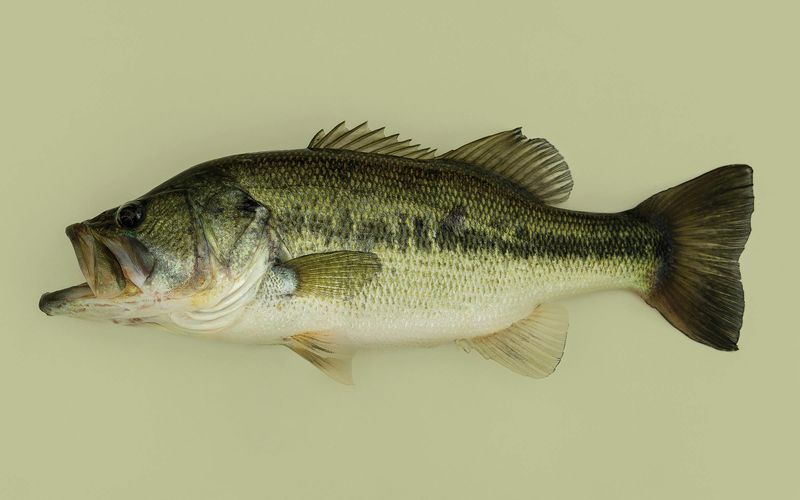
Each successful spawn adds hundreds of potential adult bass to a lake’s future. When too many nests fail, the effects ripple through the fishery for years.
Fewer juvenile bass means fewer adults to catch later. Many popular fishing spots have declined because too many anglers couldn’t resist targeting spawners, creating a downward spiral in population numbers.
4. You’re Targeting An Easy And Exhausted Fish
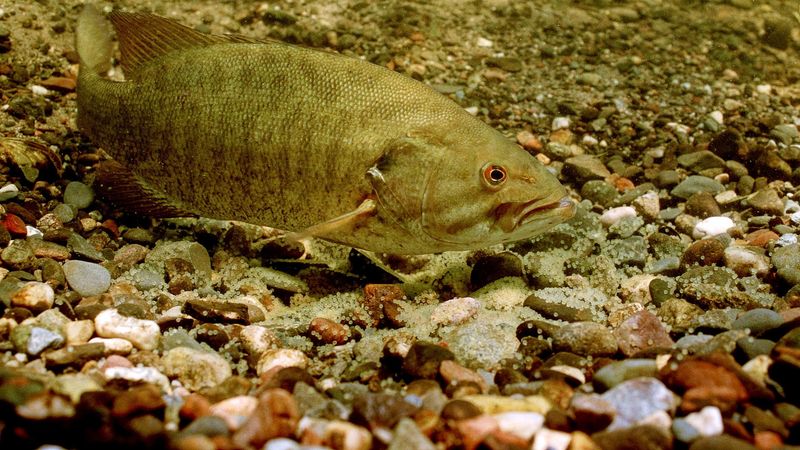
Spawning bass are already running on empty. The reproductive process drains their energy reserves and leaves them vulnerable.
These fish aren’t putting up their best fight, and they’re not making tactical decisions. They’re acting on pure instinct, defending their young. It’s like challenging someone to a race right after they’ve completed a marathon.
5. It Goes Against Ethical Angling Practices
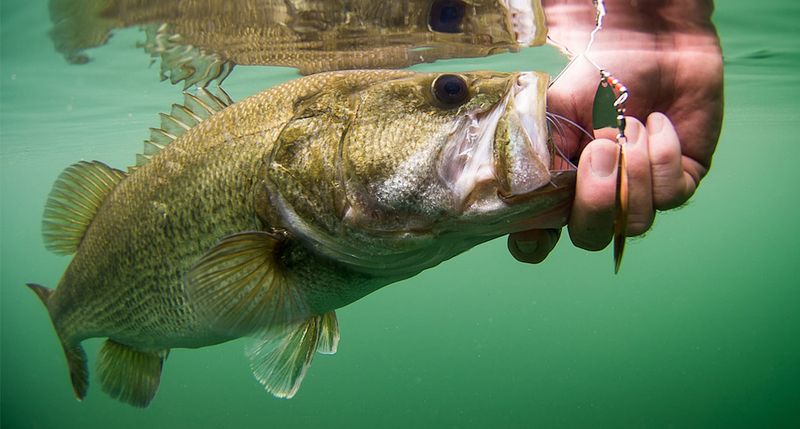
Responsible fishing means respecting the resource. Conservation-minded anglers recognize spawning season as a time to target different species or fishing techniques.
Many fishing tournaments now avoid spawning seasons entirely. True sportsmanship involves challenging yourself against fish at their best, not when they’re most vulnerable and focused on survival of their species.
6. It Can Harm The Fish Physically
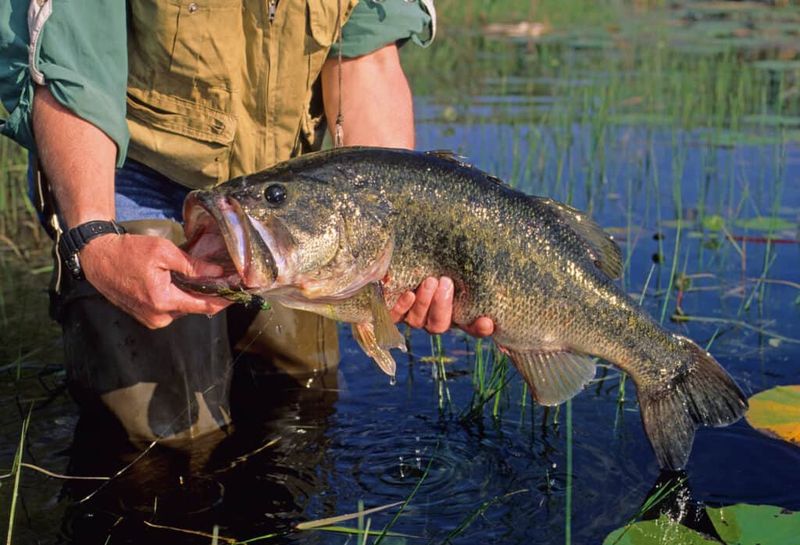
Spawning bass develop unique vulnerabilities. Males often have raw, irritated areas from fanning and guarding nests against the lake bottom.
Females are bloated with eggs and more susceptible to internal injuries. Handling these fish, even briefly, can cause wounds that become infected. Their immune systems are already compromised during this stressful period.
7. Spawning Bass Are More Likely To Die After Release
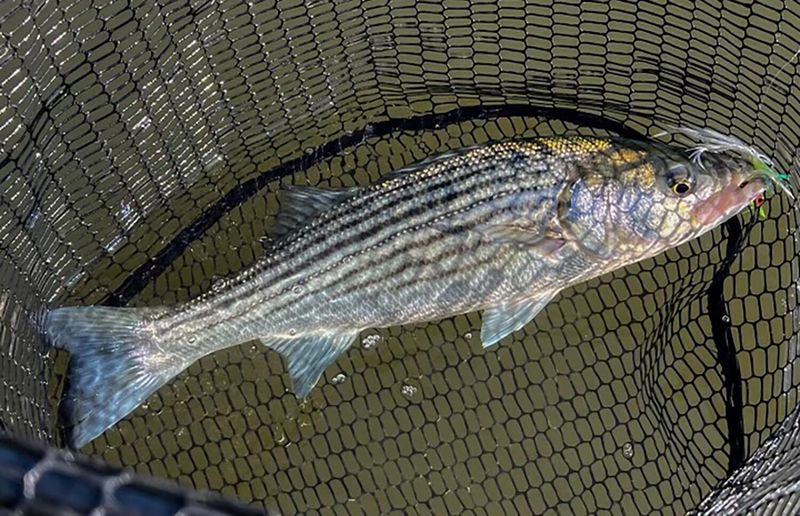
The stress of being caught hits spawning bass particularly hard. Their bodies are already diverting resources to reproduction rather than maintaining normal immune function.
Studies show significantly higher mortality rates when bass are caught during spawn. A fish that swims away might still die days later from the combined stress, leaving orphaned eggs and reducing the breeding population.
8. It Creates An Unfair Fishing Advantage
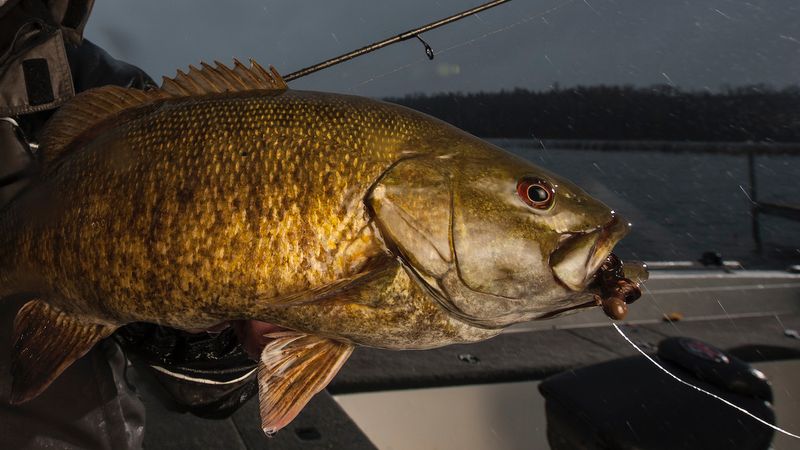
Sight-fishing for bedding bass isn’t really a test of angling skill. These fish will strike almost anything that threatens their nest, regardless of presentation or lure selection.
Many experienced anglers consider bed fishing a form of harvesting rather than true sport fishing. The real challenge comes in finding and enticing bass during pre-spawn or post-spawn periods.
9. Overfishing During The Spawn Skews Male-To-Female Ratios
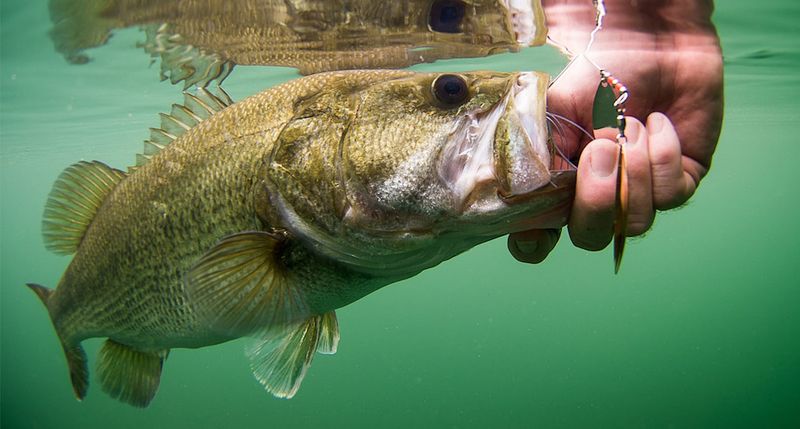
Male bass spend far more time guarding nests than females do. This makes them much more vulnerable to being caught repeatedly during spawning season.
Over time, this selective pressure can create imbalanced gender ratios in a fishery. When males become scarce, fewer nests receive adequate protection, further reducing reproductive success across the entire lake system.
10. Many Lakes Need That Spawn For Recovery
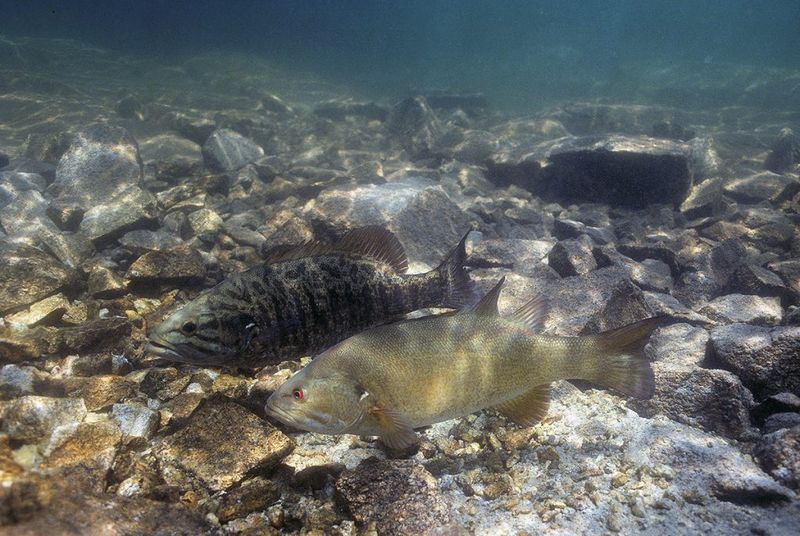
Some fisheries are struggling to maintain healthy bass populations. These waters depend on every successful spawn to rebuild numbers after facing challenges like overfishing, pollution, or habitat loss.
Conservation efforts can be completely undermined when anglers target spawning fish. One good year-class can make the difference between a recovering fishery and one that continues to decline.
11. It Can Hurt Local Fishing For Everyone
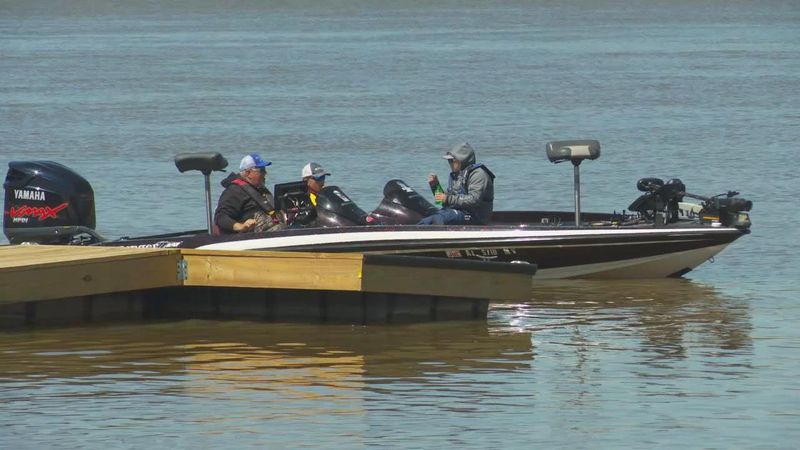
The actions of a few bed fishermen can impact everyone’s future success. When spawning bass don’t reproduce effectively, the entire fishing community suffers.
Fishing guides lose business. Local economies see fewer visiting anglers. Tournament weights decline. What seems like harmless fun during spawn season can contribute to years of disappointing fishing experiences for the whole community.
12. Letting Them Spawn Helps The Sport Thrive
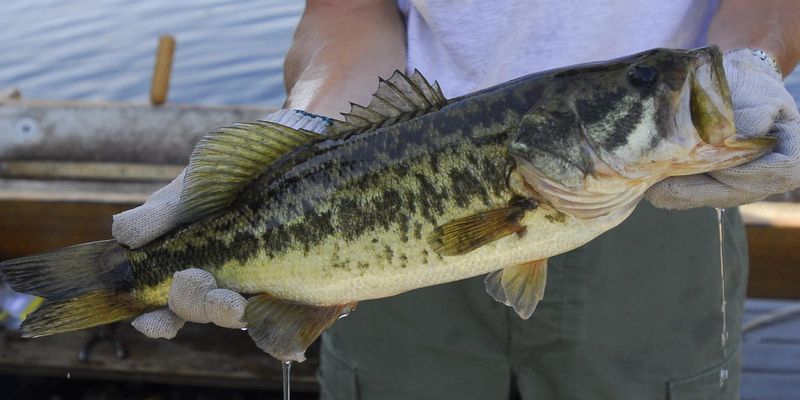
Giving bass space during spawning season is an investment in better fishing. Those protected nests produce the trophy fish we’ll catch in future years.
Many of today’s best bass fisheries exist because anglers collectively decided to respect the spawn. The temporary sacrifice of avoiding bedding bass pays enormous dividends in healthier populations, bigger average fish, and more exciting fishing experiences year-round.

